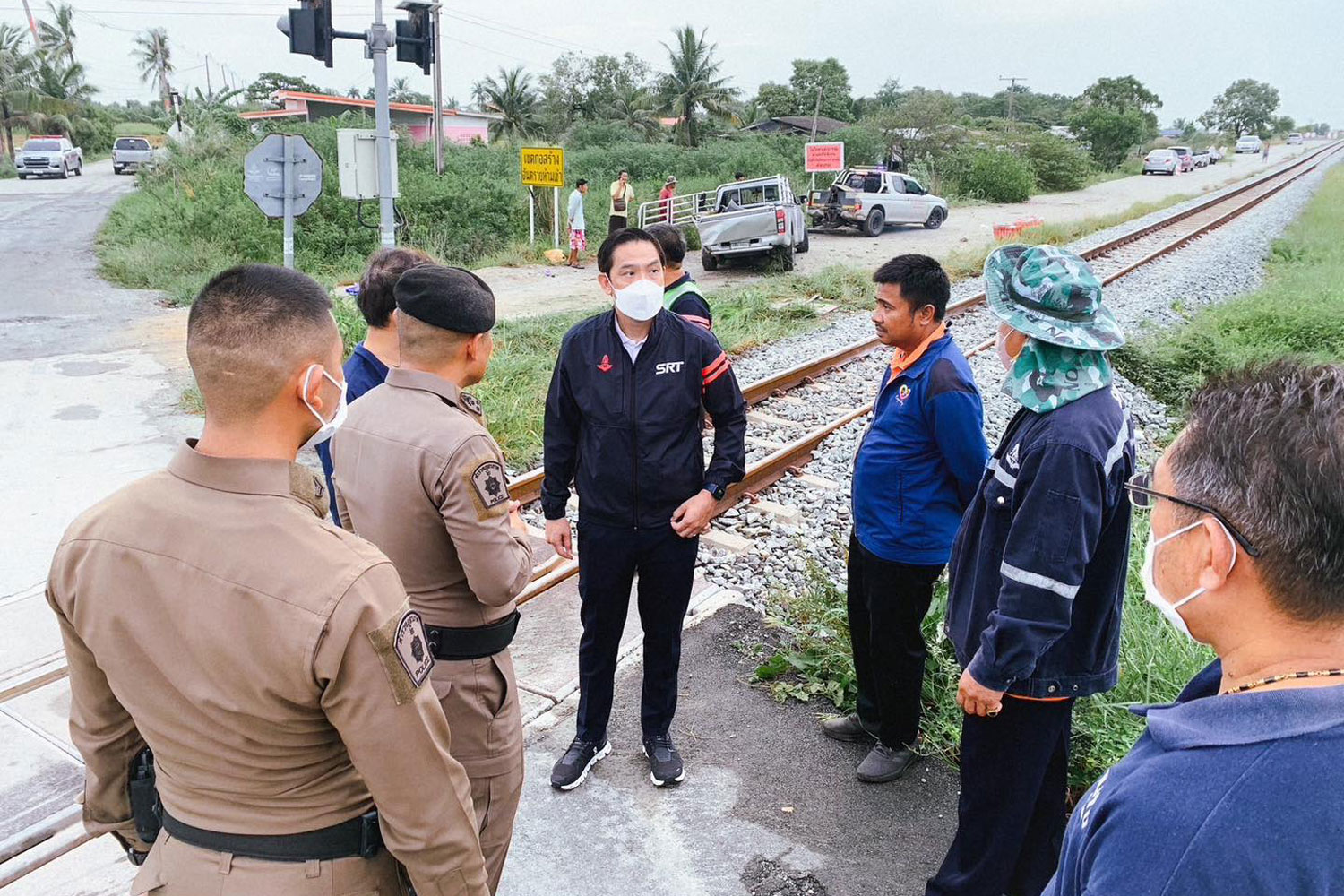
The State Railway of Thailand (SRT) will close 693 illegal railway crossings across the country, after a pickup truck was struck by a freight train in Chachoengsao last week. Eight people were killed and three injured in the accident.
The collision took place at an unofficial crossing, which isn't equipped with a signalling mechanism. Out of the 437 incidents involving trains which occurred between 2005 and 2021, about 44% took place at such crossings, according to the SRT.
Tayakorn Chandrangsu, director of safety and maintenance standards at the Department of Rail Transport, said on Monday there are 2,697 level crossings across the nation's 4,000-kilometre rail network. Of that total, 2,004 are official crossings, while 693 are not. Of the 693 to be closed, 52 are located in the North, 54 are in the Northeast, 68 in the East, and 519 in the South.
He said locals continue to use illegal crossings as they tend to be the most convenient and direct means to get to their destination.
The SRT had told each province to come up with solutions to minimise level crossing accidents, but the result was minimal at best, he said.
"When the SRT closed some of these crossings to prevent accidents, residents protested against it. They would then reopen the crossings," he added.
He said the SRT will build more walkways around its rail network, especially in communities bisected by tracks. The SRT also encourages people to use the DRT's Crossing Application app, where people can report problems with local crossings.
"We also aim to have fewer ground level crossings for our double-track expansion and high-speed railways to prevent accidents," said Mr Tayakorn.